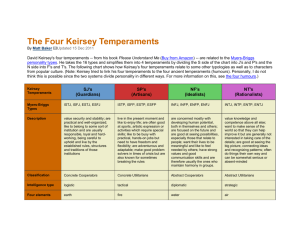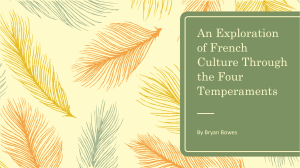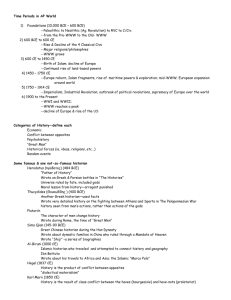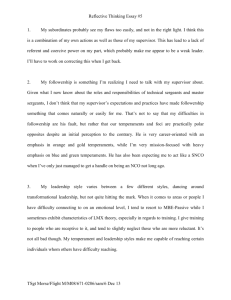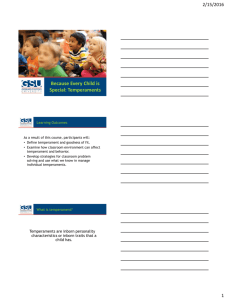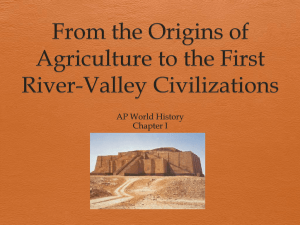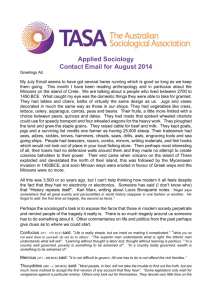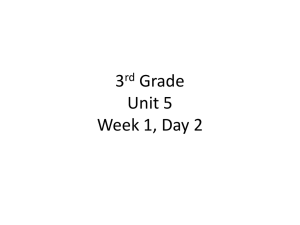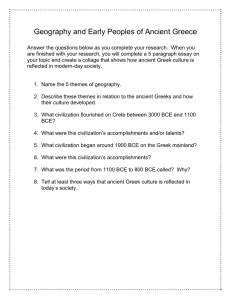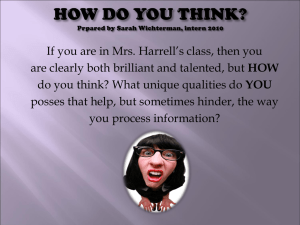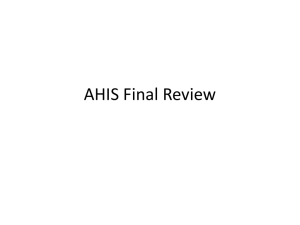Humanities 2011 - materials for hero-temperament-timeline
advertisement
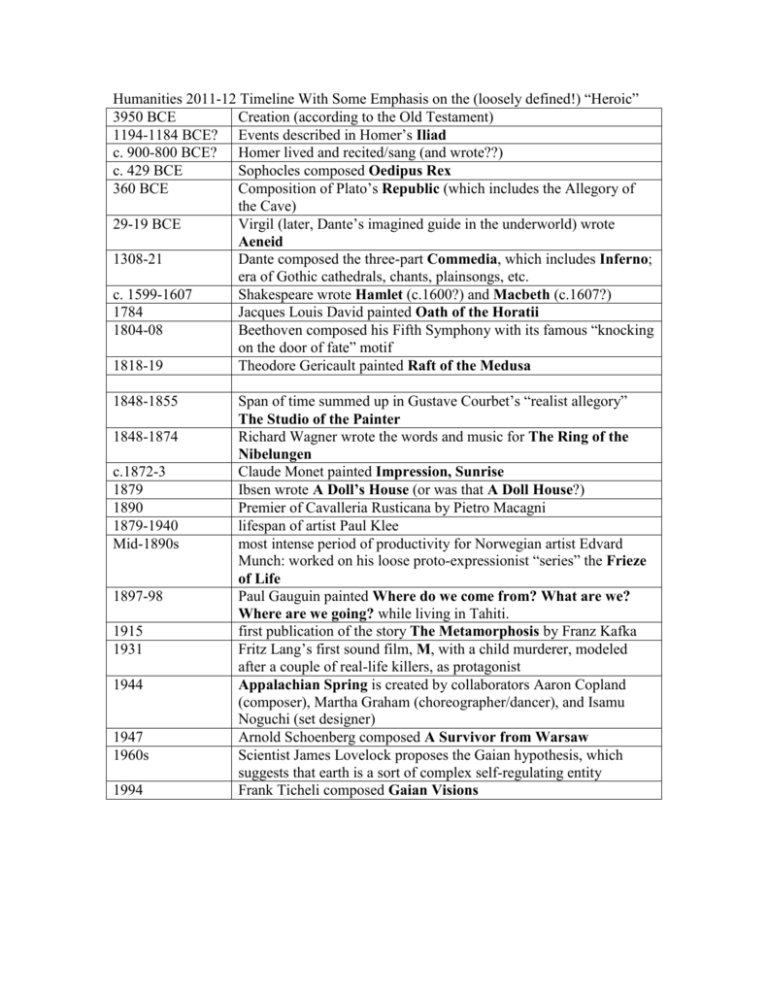
Humanities 2011-12 Timeline With Some Emphasis on the (loosely defined!) “Heroic” 3950 BCE Creation (according to the Old Testament) 1194-1184 BCE? Events described in Homer’s Iliad c. 900-800 BCE? Homer lived and recited/sang (and wrote??) c. 429 BCE Sophocles composed Oedipus Rex 360 BCE Composition of Plato’s Republic (which includes the Allegory of the Cave) 29-19 BCE Virgil (later, Dante’s imagined guide in the underworld) wrote Aeneid 1308-21 Dante composed the three-part Commedia, which includes Inferno; era of Gothic cathedrals, chants, plainsongs, etc. c. 1599-1607 Shakespeare wrote Hamlet (c.1600?) and Macbeth (c.1607?) 1784 Jacques Louis David painted Oath of the Horatii 1804-08 Beethoven composed his Fifth Symphony with its famous “knocking on the door of fate” motif 1818-19 Theodore Gericault painted Raft of the Medusa 1848-1855 1848-1874 c.1872-3 1879 1890 1879-1940 Mid-1890s 1897-98 1915 1931 1944 1947 1960s 1994 Span of time summed up in Gustave Courbet’s “realist allegory” The Studio of the Painter Richard Wagner wrote the words and music for The Ring of the Nibelungen Claude Monet painted Impression, Sunrise Ibsen wrote A Doll’s House (or was that A Doll House?) Premier of Cavalleria Rusticana by Pietro Macagni lifespan of artist Paul Klee most intense period of productivity for Norwegian artist Edvard Munch: worked on his loose proto-expressionist “series” the Frieze of Life Paul Gauguin painted Where do we come from? What are we? Where are we going? while living in Tahiti. first publication of the story The Metamorphosis by Franz Kafka Fritz Lang’s first sound film, M, with a child murderer, modeled after a couple of real-life killers, as protagonist Appalachian Spring is created by collaborators Aaron Copland (composer), Martha Graham (choreographer/dancer), and Isamu Noguchi (set designer) Arnold Schoenberg composed A Survivor from Warsaw Scientist James Lovelock proposes the Gaian hypothesis, which suggests that earth is a sort of complex self-regulating entity Frank Ticheli composed Gaian Visions Classical temperament form restraint order balance propriety clarity absolute truth/objectivity didacticism Romantic temperament escapism the exotic the individual emotion spirit-in-nature the irrational the supernatural subjectivity Realist temperament objectivity verisimilitude the everyday social critique empiricism the evidence of the senses democratic impulse: anti-hierarchical Place artists/composers/writers and artworks/music/literature from the course (refer to our skeletal timeline as a starting point) on the continuum of the three temperaments: classical/romantic/realist. Be sure to include works that were not from the three units on those three periods (classical/romantic/realist). As you do this, formulate some working hypotheses about the nature of heroism as conceived within those three temperaments. Here are a few questions to help guide your work: -Do heroes and the heroic play different roles in the three “worlds” of those temperaments? -Do all three temperaments emphasize the heroic to the same degree, or does one or more temperament fail to leave much room for the heroic? -In what ways does examining and considering the place of heroes and the heroic help us to understand these three temperaments? -Do different sorts of people and/or actions tend to become “heroicized” within works from the three different temperaments? -What is the difference between a hero and a protagonist? -Do the relationships between heroes and the societies to which they belong (of which they are emblematic?) differ in some notable and illuminating way from one temperament to another? -Are heroes to be emulated? Admired? Envied? Pitied? Learned from? All of the above? Do your answers differ as you consider different temperaments and works representative of those different temperaments? -To what degree are the two concepts, heroism and journey, necessarily bound together? Is it possible to be a stay-at-home hero? Is it possible to travel unheroically?
